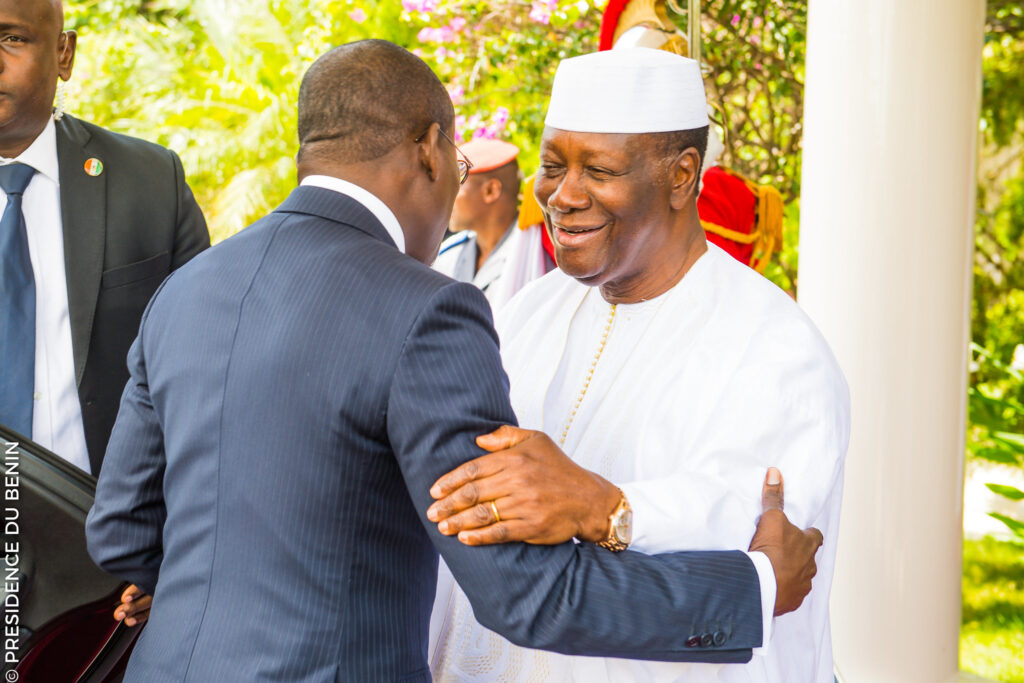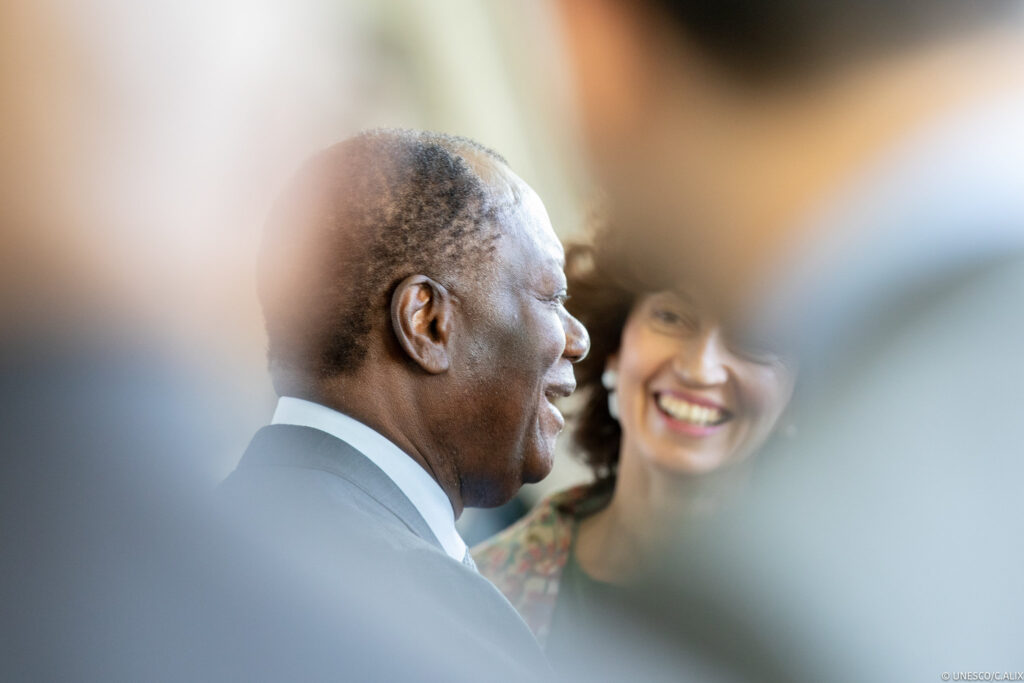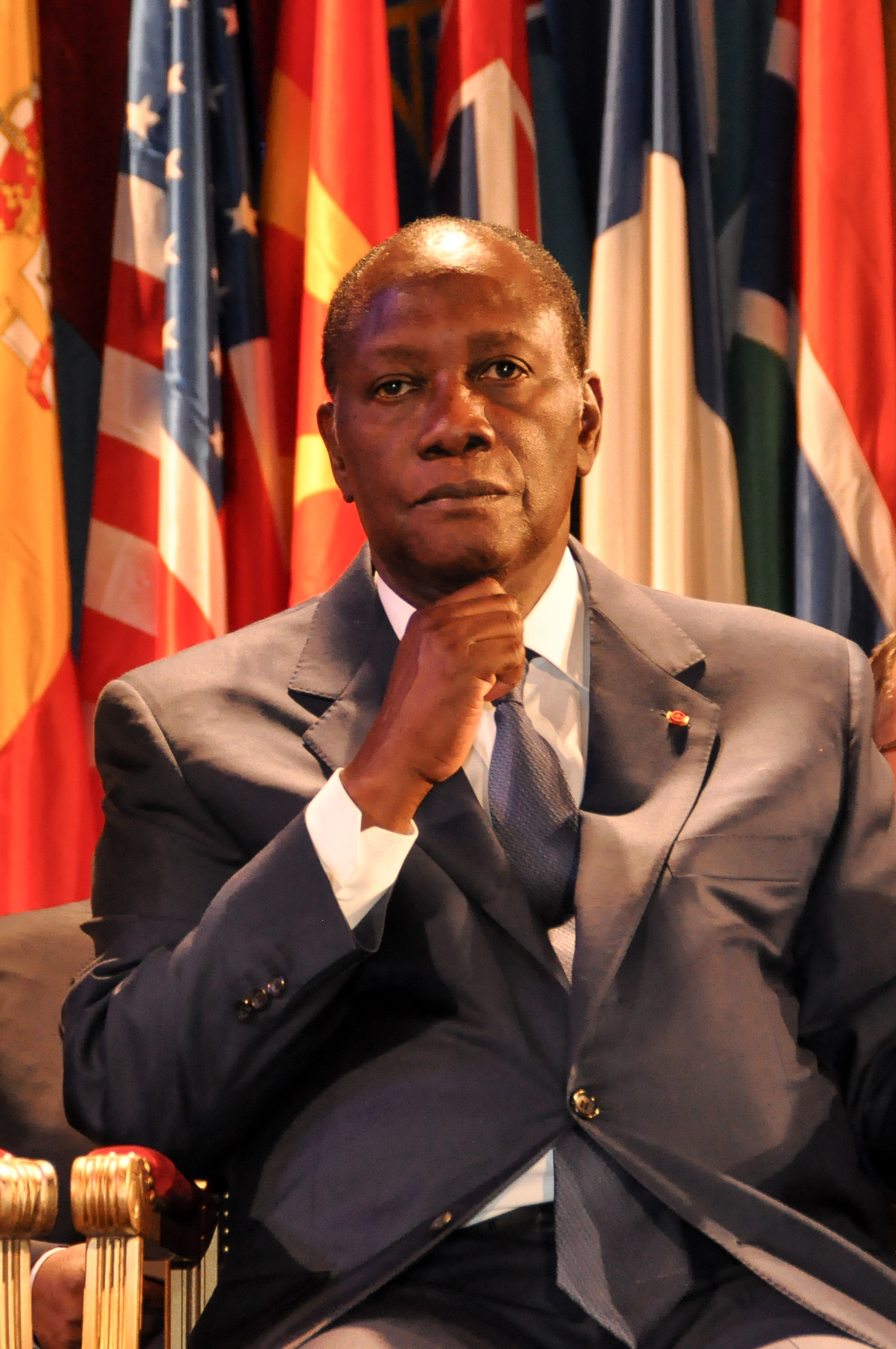Alassane Ouattara was born Alassane Dramane Ouattara, on born January 1, 1942, in Dimbokro, Côte d’Ivoire (Ivory Coast). A member of the Islamic Dioula people, Ouattara was first elected president of Côte d’Ivoire in 2010. His brother is Téné Birahima Ouattara.
In 1965, Ouattara received a Bachelor of Science degree in business administration from Drexel Institute of Technology, Philadelphia, Pennsylvania, followed by a Master of Arts degree in 1967 from the same institution.
From 1968 to 1973, Ouattara served as “Chargé de Mission” at the Central Bank of West African States (Banque Centrale des Etats de l’Afrique de l’Ouest/BCEAO) in Paris, France while earning a Doctor of Philosophy degree from the University of Pennsylvania in 1972. Afterward, he became Special Advisor to the Governor of the BCEAO and Director of Research.

After returning to I Côte d’Ivoire, in 1990, Ouattara served as the chairperson of a special commission on economic recovery during the administration of President Félix Houphouët-Boigny. And later in 1990, he was elected Prime Minister of the country, serving until 1993. While in office, he married Dominique Claudine Nouvian from Constantine, Algeria. His children, David Dramane Ouattara and Fanta Catherine Ouattara, however, are from a previous marriage.
In 1994, Ouattara was named Deputy Managing Director of the International Monetary Fund (MF). While there, he penned Integration and growth in a globalized world economy, published by the organization in 1999.
In 2010, Ouattara, who the Rassemblement des Républicains, the main political party in the nation, supported during the first stage of the voting process, received 32 percent of the vote, he came in second, behind Koudou Gbagbo Laurent, who won 38 percent. However, when the two politicians moved forward to the next level of voting that year, Ouattara received 54 percent of the vote. While Ouattara claimed victory at the polls, the presidency was awarded to Gbagbo with 51 percent of the vote because of claimed irregularities in the voting process. Nonetheless, Ouattara continued to declare himself the official winner during the next five years even if he did not occupy the office.
Ouattara was “re-elected” President in 2015, defeating former Prime Minister Pascal Affi N’Guessan decisively.

In 2020, Ouattara ran for President of t Côte d’Ivoire a third time. He received 94.27% of the vote and more than 90% in most districts, although the opposition challenged those totals claiming his rigged reelection was an illegal attempt to hold onto power. Despite the challenge, he was declared the winner by the Independent Electoral Commission. Despite protestors demonstrating in the streets of Abidjan, the nation’s largest city, the IEC declared that the final voting participation rate for the election was 53.9% and thus the election was legitimate.
Later in 2022 after his election was secure, President Ouattara announced his plans for the government, including eliminating at least 30 of the 41 ministers and more attention to global climate change, economic growth, and greater emphasis on national security and social cohesion. He accelerated government investments in schools and hospitals and promoted greater employment opportunities in the mostly Islamic northern region of the nation to provide alternatives to violent extremism. He also announced plans to strengthen the Côte d’Ivoire’s national defense system by recruiting 3,000 additional soldiers.

